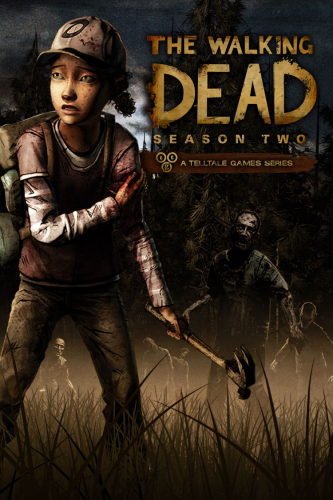Telltale is a company synonymous with tension and drama; they have no problem taking their narrative to dark, dangerous places, and their characters through many levels of hell. All That Remains should be considered by fans of the first season as a grueling, yet poignant exhibition of this narrative sadism. Everyone else can consider this a missed opportunity to fix long standing technical issues, or write a unique or surprising first act in a license and universe that has be spread very thin as of late.
Starting in a pretty familiar situation, young Clementine travels nomadically, mourning quietly the effects of last season’s conclusion. Retaining the purest parts of the candy coated child she embodied almost exclusively in the original season, actually stepping into her shoes provides a new opportunity to get her as dirty as expected for Walking Dead protagonists. This happens very early and really never stops, and becomes the most tense and engrossing part of the story being told, because her trials are the only ones that aren’t so incredibly predictable, even if they will almost always end in a way the you can expect. The rest of the game – its characters, the murky, overall story – are all very non-compelling.
Too many characters embodying roles that are almost cookie cutter compared to every other work of survival fiction. How they speak, their familial struggles – its almost too campy to really accept, anymore. Characterization is a very important part of fiction, because of its ability to make people relatable when the super fantastical setting can often times not be. But zombie apocalypses are nothing new, and it’s time for writers to get a little more creative than a conspicuously mixed race party of survivors complete with your ‘softy,’ ‘wise old leader,’ and ‘suspicious lady with her own dirty secrets.’ Maybe the fact that these literary criticisms can be made against the industry’s best writing team is a symptom of the genre or the artform as a whole, and less of just this particular work. The fact of the matter is, though, this game is a big violator of a lot of noticeable, disengaging clichés that make it very hard to look at this particular outing with the same wide-eyed wonder as the first series.
There are really great moments, though. As with the books and (sometimes) the TV show, some of the best moments don’t involve zombies at all. It’s in these sequences, where the pacing is perfect and you feel as vulnerable as Clementine herself when behind the controller, that you remember that these games and this genre are in some of the best hands imaginable. But there are just as many perfectly pitched and directed moments as there are moments that could have been that, if they didn’t feel like zombies were simply shoehorned into the conflict, just to remind everyone that the dead are still walking.
Moments where the silence and loneliness of some of the places you’ll go really lend to the immersion, but are instantly ruined when suddenly a zombie happens to surprise his way onto the scene. When he’s there, the zombie is suddenly the loudest and most belligerent thing in the field. The way they act, they would have never gotten the drop on you, no matter what other sort of nonsense is happening. Another example of TWD lowering its own standards to conform to some of the worst traits of the horror genre.
Outside of the passable, but not groundbreaking story elements there are still more, less excusable issues. My tastes in my storytelling is different than a lot people, but every gamer deserves a game that runs well and reliably. Though it lacks a lot of the horrible crash issues of the originals, far too often does the frame rate dip to a slow trickle, especially during moments when you’re not even playing. Far too many times did I miss important frames of cutscenes – moments where the final blow was struck on an enemy, for example – because the visuals just couldn’t stay synced with the audio. If big, action packed titles like Call of Duty and Halo can manage to keep a steady fps, I can’t accept any excuse as to why a point and click adventure cannot.
Closing Comments
But these games can be somewhat like comfort food to many people. Many look for these story tropes, and for those of you that do, this game is for you. For players that really want to see the next evolution of Clementine, this is for you as well. For people who don’t mind the technical hiccups that have plagued almost every game this developer has released, this game is for you. For me, all of these things outshined the brilliant moments that this game really does possess, far too often.






